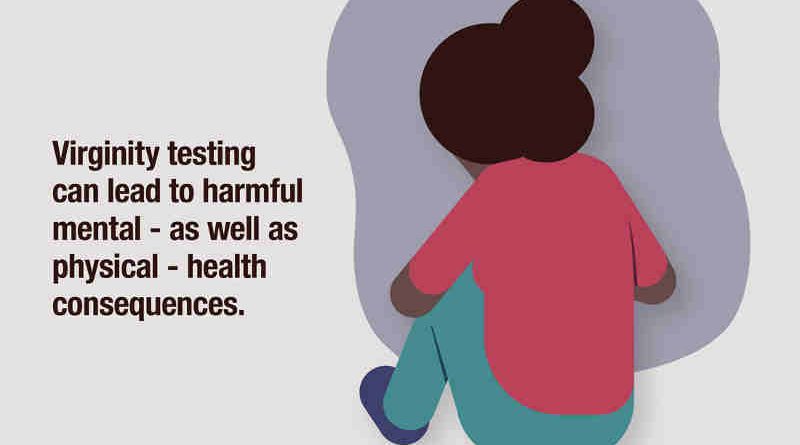Can Virginity Testing Determine If a Girl Had Sexual Intercourse?

Can Virginity Testing Determine If a Girl Had Sexual Intercourse?
WHO, UN Human Rights, and UN Women have issued a statement calling for the elimination of so-called “virginity testing”.
“Virginity testing”, which is also often referred to as hymen, “two-finger” or per vaginal examination, is an inspection of female genitalia designed to determine whether a woman or girl has had vaginal intercourse.
According to WHO, “virginity testing” has no scientific or clinical basis. There is no examination that can prove a girl or woman has had sex – and the appearance of girl’s or woman’s hymen cannot prove whether they have had sexual intercourse, or are sexually active or not.
The statement adds that “virginity testing” is a violation of the human rights of girls and women, and can be detrimental to women’s and girls’ physical, psychological and social well-being.
It reinforces stereotyped notions of female sexuality and gender inequality. The examination can be painful, humiliating, and traumatic. Given that these procedures are unnecessary and potentially harmful, it is unethical for doctors or other health providers to undertake them. Such procedures must never be carried out.
The interagency statement underlines that virginity testing has been documented in many places, being a long-standing tradition in a number of countries.
In many settings such tests are considered part of assessment of survivors of rape. This is unnecessary, and can cause pain and mimic the original act of sexual violence, exacerbating survivors’ sense of disempowerment and cause re-victimisation.
The result of this unscientific test can impact upon judicial proceedings, often to the detriment of victims and in favour of perpetrators, sometimes resulting in perpetrators being acquitted.
In addition, according to the statement, women prisoners and those in detention facilities are at heightened risk of abuse and mistreatment, including forced virginity examinations.
Virginity tests on women prisoners are common, intimidating and humiliating; they violate women’s rights to privacy and physical integrity, and further disempower them.
When performed on women arrested for protesting or other forms of political activism, forced virginity examinations perpetuate a climate of fear and intimidation that prevents women from exercising their rights.
Photo courtesy: WHO
💛 Support Independent Journalism
If you find RMN News useful, please consider supporting us.




